Turkish cultural practices I follow that make me almost Turkish
Living in Turkey for more than fifteen years, I’ve had a lot of opportunities to watch and adopt Turkish cultural practices. I’m fascinated by what I see and always want to learn more. I read everything I can get my hands on and pepper my Turkish friends with numerous questions so often they say I’m almost Turkish.
My best girlfriend says if I’d only learn to make Turkish tea I’d then be a full-blown Turk. I think I’m pretty close even without the tea-making skills, and here’s why.
Everyday Turkish Cultural Practices
Although I do still forget the order of the tea ritual, I know how I like to drink my tea. “Açık” meaning ‘open’ as the Turks express it, or weak as we think about it in English. I also know a business meeting, no matter how tense, can’t start unless you say yes to a glass of tea AND at least take a sip. Up until that point conversation is strictly limited to the weather and if in Istanbul, the abominable state of the traffic that day (any day in actual fact).
I actually prefer coffee over tea. After all, you don’t get your fortune read in Turkey using tea leaves.
I no longer use just one finger to point something out or give directions. I extend all the fingers on my hand and wave my hand in the given direction, much like a policeman directing traffic. Now I’m an expert in Turkish body language.
I automatically extend my hand when meeting a person for the first time, saying “Merhaba, nasılsınız?” (Polite form of hello, how are you?), followed by “Memnun oldum” (pleased to meet you). If the person is a friend I shake hands, ask them “N’aber?” (What’s up?) and kiss them on both cheeks. When the person is someone I haven’t seen for a long time, has good news, or has been experiencing a bad time, the handshake and cheek kissing is followed by pressing my cheek firmly to their cheek while gripping their shoulders tightly and holding them to me. This is done on both sides of their body.
I also know all the Turkish phrases to use when someone is ill, buys a new house, or is just having something to eat.
I have an inordinate number of Turkish girlfriends whose every weight gain/loss, husband/boyfriend troubles, mother-in-law/potential in-law problems, work status/changes/updates, outcomes of shopping expeditions/future shopping expedition plans, hair style disasters/changes/possibilities, I know about. They in turn express their affection for me by never failing to comment on any of these topics as they affect my life, at numerous in depth café/restaurant/bar or round table meetings.
I have a full range of glamorous tulle and jewel encrusted party dresses to wear to any formal events. Along with appropriately frivolous high heeled shoes, I have over the top dangly sparkly accessories and make-up to match.
No matter how many pairs of slippers I have at home, whenever I see any on sale I always buy some to add to my collection, because you never know who’s going to drop in.
When guests come over to dinner I frequently urge them to take “Bir tane daha”, (just one more piece), or say “Biraz daha yi” (eat a little more) while indicating the size of the top third of my little finger, before heaping their plate high with a second helping. I know if I say “Bu akşam bitecek!” they’ll be transported back to their childhood when their mothers told them the food was to be finished that night, making a competition out of eating the rest of the food so no leftovers would remain.
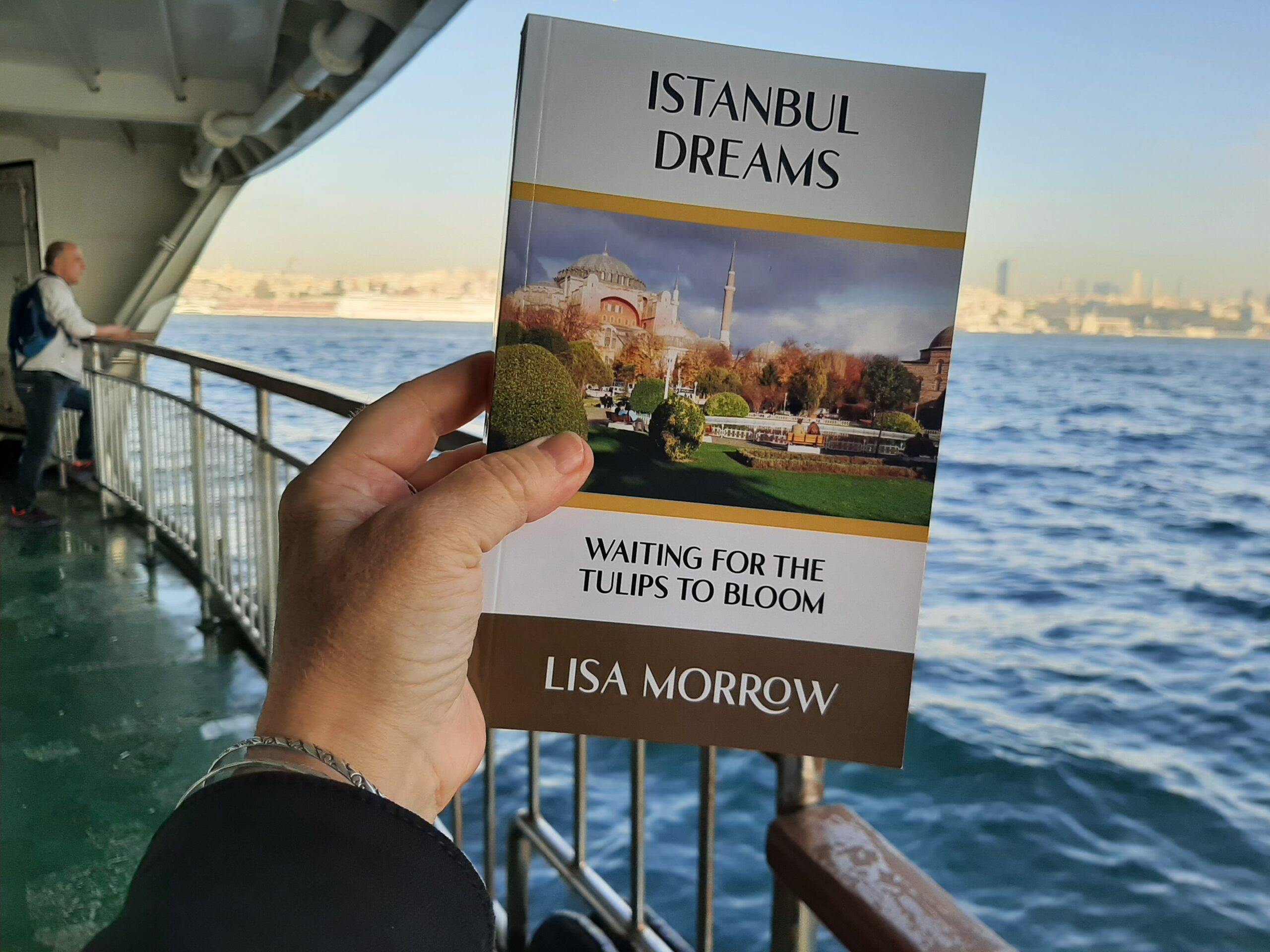
If that’s not enough, a group of scientists in Copenhagen have traced the gene for blue eyes back to a single individual in the Black Sea region. Although this individual lived six to ten thousand years ago, and they don’t say which side of the Black Sea he came from, those are just minor details. I have blue eyes, so I must be Turkish. It’s official.
Find out more about my ultimate move to Turkey in my memoir Istanbul Dreams: Waiting for the Tulips to Bloom. Making the decision to come was easy. It’s choosing to stay that can be hard.
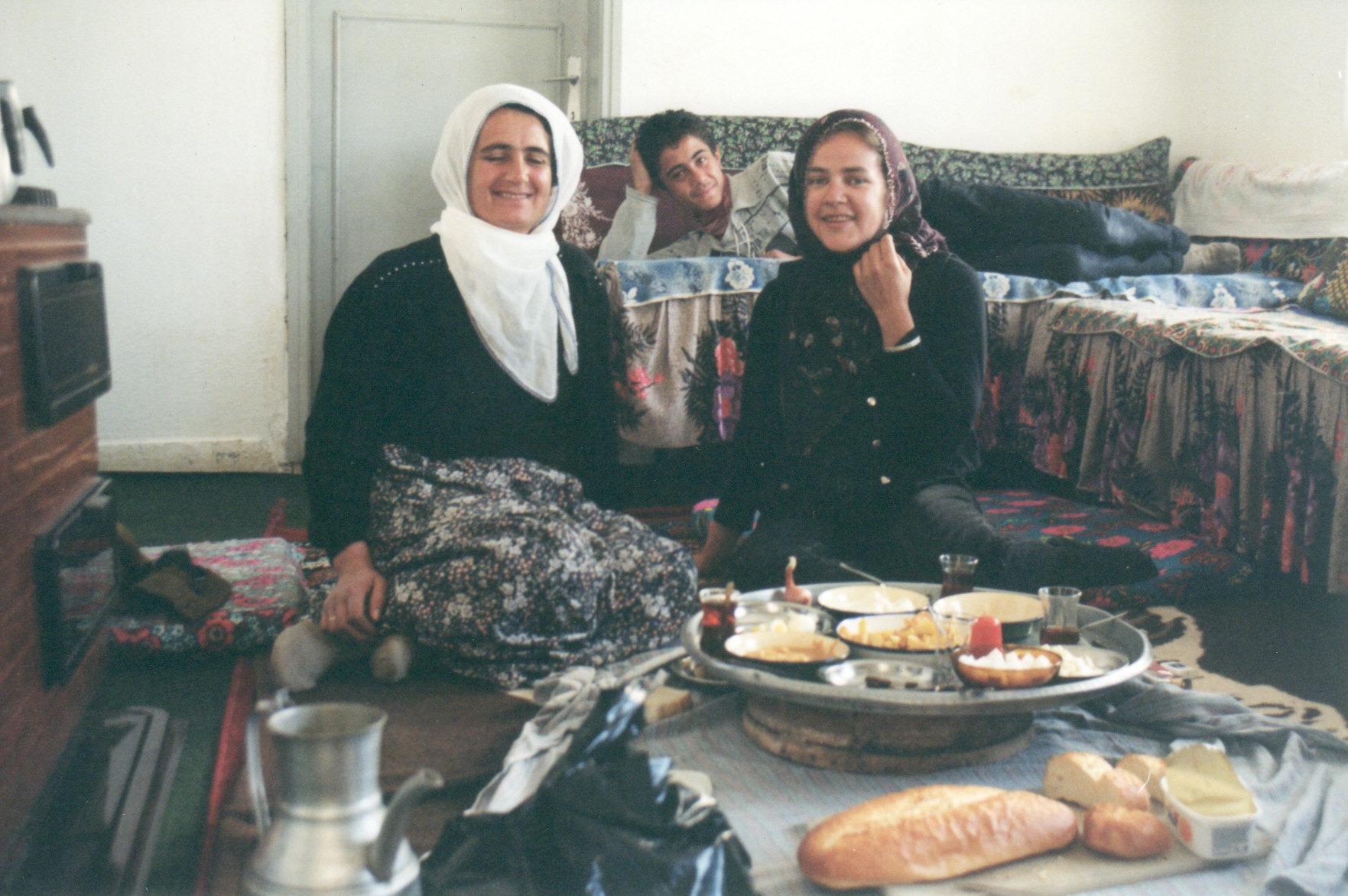
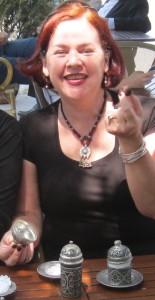


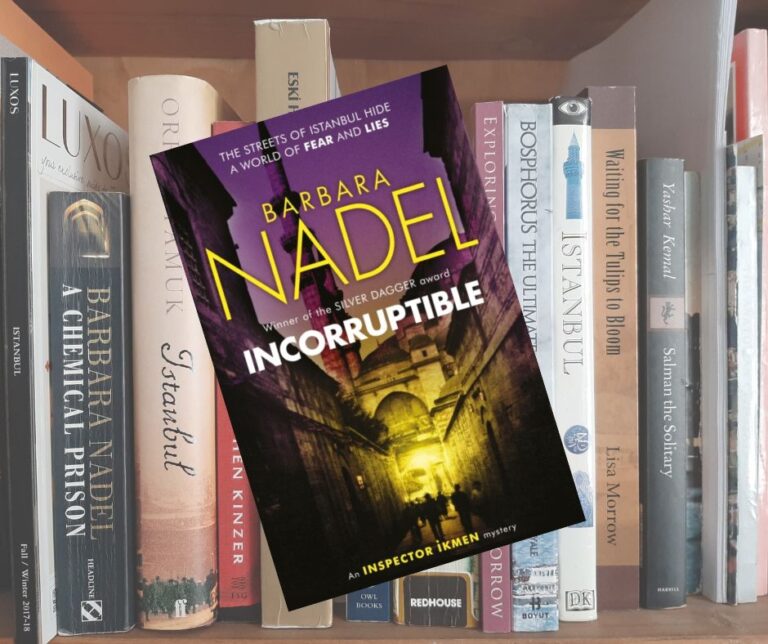
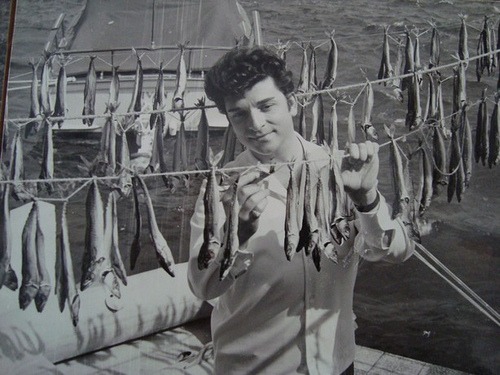
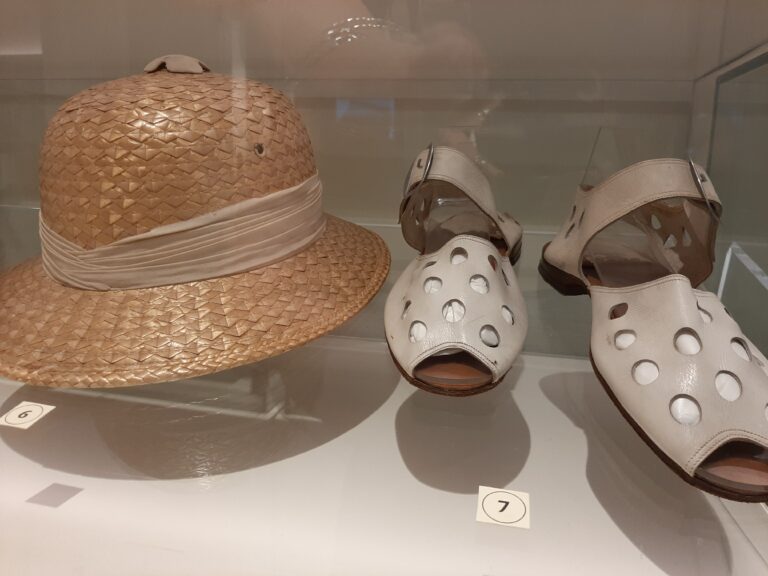
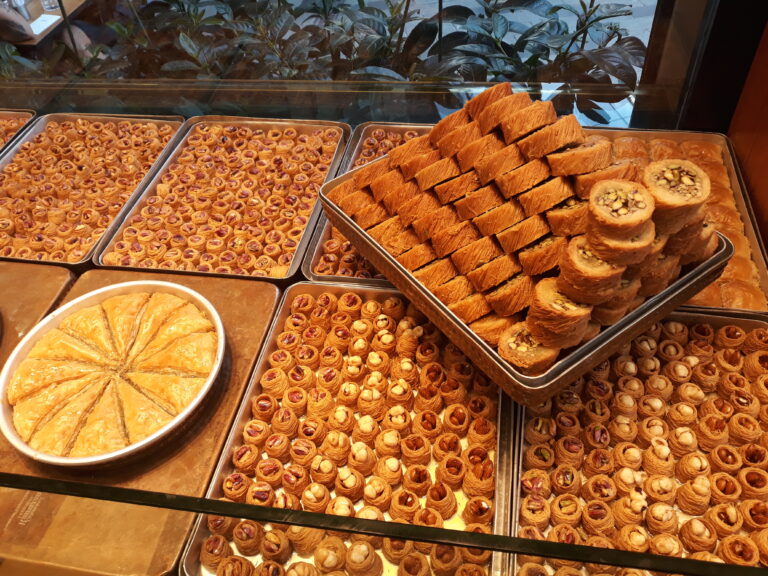
I spent many holidays in Turkey and drove around the country with my late husband, all of which we found totally enjoyable. We first visited in 1980, but I think it has changed somewhat since then. I noticed on my last visit that the former hospitality was not so widely practised, apart from the remote villages, but nevertheless, it is still a magical place.
I have enjoyed your posts and hope to continue reading your essays
Hi Marie,
It’s always great to hear from people who have a long and endearing relationship with Turkey. It’s even changed since I first went in 1990, but I have long-term friends and such good memories, Turkey will always have a special place in my heart. I’m glad you enjoy my essays and yes, I have more coming.
Cheers,
Lisa
Such observation. And so humourous.
‘Açık’ by the way means ‘open’, but it is also used to mean ‘light’ in some cases, eg. ‘açık renk’, ‘açık çay’.
Hi Engin,
Thanks for your comments. It’s funny you mention that açık also mean open because in my first draft I had written the definition as open tea. Then I thought some of my readers who know little Turkish would relate better to a more ‘English’ version of tea! Ouch, now my brain hurts.
Cheers,
Lisa
As long as you have blue eyes, and just a little bit of sequin (if you’re a woman), then you’re in!
Life in Istanbul must be very different from Bodrum. I have one fancy dress that I have struggled to wear more than a few times and I’ve had it for decades. I do have blue eyes though so I’m in.
Thanks for the article. It was quite interesting. I am from the Blacksea region (Rize) but I didn’t know about the blue eyes thing.
Hi Luna,
I only found out about the Black Sea blue eye information a few months ago, but I think scientists discovered the link some years ago. I certainly explains the blue eyes of the Laz people of the eastern Kara Deniz.
Lisa
”Biraz daha yi” (eat a little more)” = you use ”yi” instead of ”ye”, which shows that you are totally Turkish 🙂 We make fun of each other by saying ”yi” instead of ”ye”, pretending that we are coming form East of Turkey 🙂 My thesis was about cross-culture so I find your entries very interesting.
Hi Melis,
Thanks for your comment. I probably say ‘yi’ and not ‘ye’ because I lived in Goreme for three months and also Kayseri for two years. I have lots of conversations in my so-so Turkish with taxi drivers and old people on buses and have met a lot of people from all over the country. I’m glad you find my entries interesting. I am a sociologist which definitely has an impact on the way I write. I think you’d find my collection of essays, ‘Exploring Turkish Landscapes’ equally interesting.
Regards,
Lisa